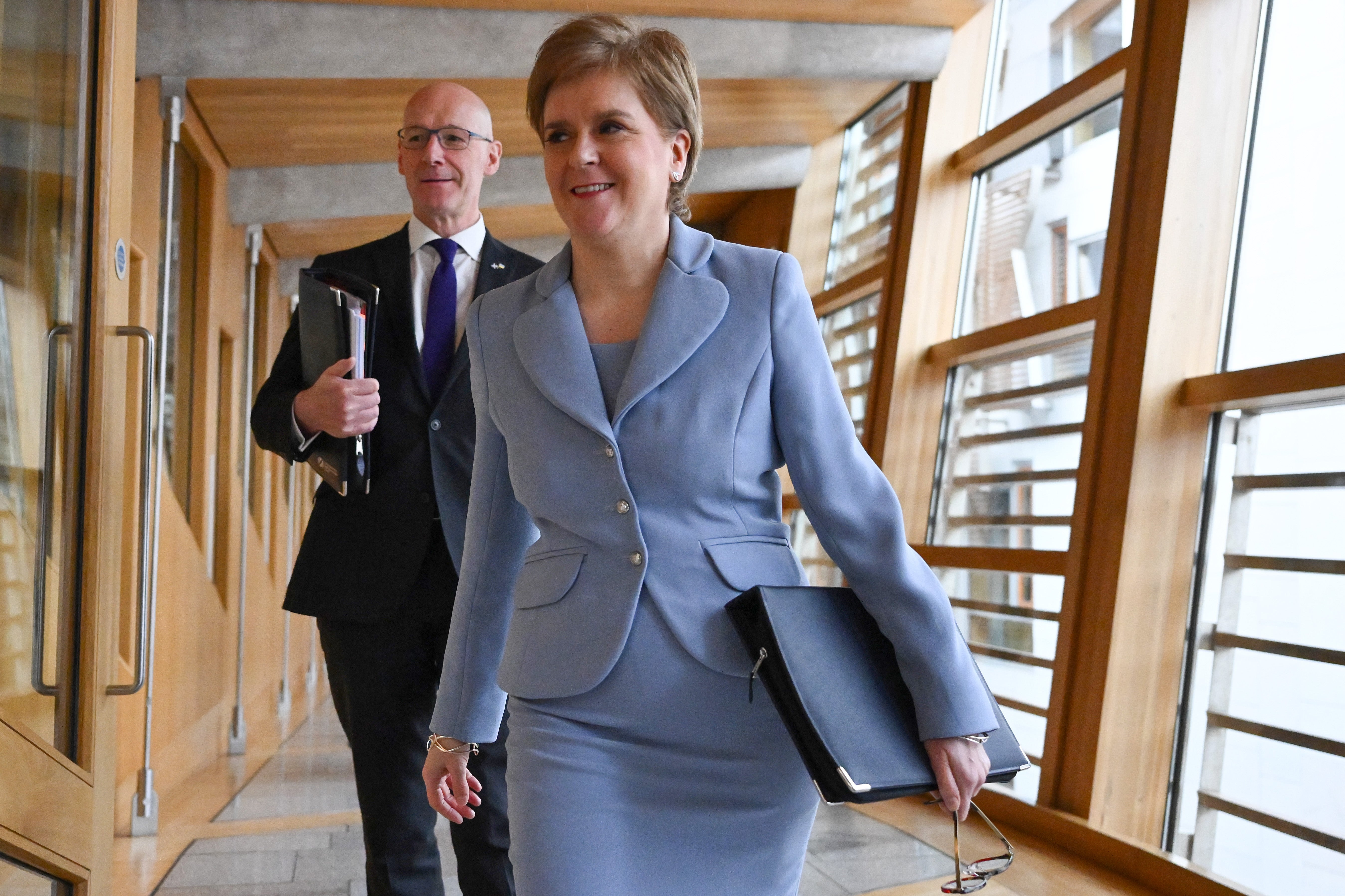Nicola Sturgeon has told her party what it doesn’t want to hear on a second independence referendum
Scotland’s first minister will be in trouble with the SNP if the Supreme Court says no, writes John Rentoul


Nicola Sturgeon is a brilliant politician, possibly the best in the UK, but even she cannot conceal the weakness of her position. Today, she unveiled with great fanfare her plan to hold a legal second independence referendum, on 19 October 2023: her plan is to ask the UK Supreme Court if she is allowed to.
The answer to that ought to be no, as the law on devolution was crystal clear: the Scottish parliament could hold a referendum on independence only with the agreement of the UK government.
Still, the law can be unpredictable, and there must be a chance that the Supreme Court will rule in her favour. It is not clear what the legal arguments for that would be, and they certainly weren’t spelt out in Sturgeon’s statement today. She tried to pretend that because it would be a consultative referendum (rather than a “self-executing” one), the court might agree to it. But then she gave the game away by admitting that the referendums of 1997 (devolution), 2014 (independence) and 2016 (Brexit, UK-wide) were consultative too.
And she admitted that “legislation would have to be passed by the UK and Scottish parliaments”, so even if a consultative referendum might be within the power of the Scottish parliament, the subsequent legislation might not be.
She sounded as if she were preparing for the Supreme Court to rule against her. “If that happens it will be the fault of Westminster legislation,” she said. If in doubt, she bolts for the politics of grievance. “It would be better to have that clarity sooner rather than later,” she added, before rehearsing the themes of the SNP campaign against an adverse verdict. It would mean the idea that the UK was “a voluntary union” was “a fiction”, she said, promising to “fight the next general election on the single issue of independence”.
In other words, she will fight the next general election on the same basis as the previous one, and get no closer to the goal of independence as long as Boris Johnson – and his successors – say “not yet” to a second referendum.
“I fervently hope the Tories lose the next election,” she said. “They deserve to.” Sturgeon might actually have more leverage over a minority Labour government in a hung parliament, which is the most likely alternative. It would at least change the story, but the problem remains that Keir Starmer knows that he cannot concede a second referendum either.
What was really striking about Sturgeon’s statement, though, was how little she said about the case for independence rather than grievance about process. I don’t know if there is a Scottish word for chutzpah, but she is outstanding at it. She complained that “parties opposed to independence” were using the question of legislative competence to “avoid the substance” of the case for independence.
To keep up to speed with all the latest opinions and comment, sign up to our free weekly Voices Dispatches newsletter by clicking here
Yet she had nothing to say about any of the critical questions that the Scottish National Party failed to answer when it lost the 2014 referendum. How would an independent Scotland make up the £2,000 a year for every person that comes from the UK’s rules for sharing tax revenue? For how long would the country keep the UK pound as its currency? On what terms would it join the EU? And once the terms of separation have been agreed with the UK (or not) should there be a further referendum (the SNP voted for a second Brexit referendum in 2019)?
The only argument she advanced for independence was that some countries that are “comparable to Scotland” have a “stronger economic performance”. Naturally, that would not convince me, an expat Scot in London, that independence is a good idea. My view is that there is no case for another referendum until it commands overwhelming and sustained support from Scottish residents for years.
But what was important about it is that it won’t convince her own party. She cannot keep the SNP together for much longer if she cannot deliver a referendum. She has performed miracles by keeping the show on the road for eight years. What was significant about her statement today was the unmistakable sense that the show is coming to an end.



Join our commenting forum
Join thought-provoking conversations, follow other Independent readers and see their replies
Comments